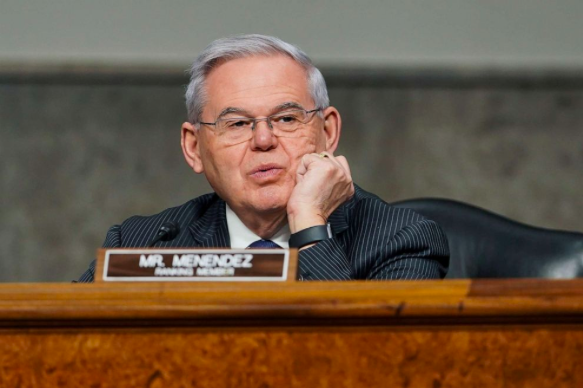Sweeping Reforms Proposed: the Citizenship Act of 2021
Sen. Bob Menendez, who introduced the bill, speaks at a 2021 hearing on the nomination of an ambassador.

March 2, 2021
On February 18th, the Biden Administration released the bill formally known as the US Citizenship Act of 2021, proposing sweeping immigration to reform, specifically the creation of an eight year path to citizenship for current undocumented immigrants.
The 353 page bill, which can be viewed in entirety here, is summarized by it’s first line as intending to “provide an earned path to citizenship, to address the root causes of migration and responsibly manage the southern border, and to reform the immigration visa system […].”
According to the National Law Review, the bill would create a new pathway to citizenship for immigrants with a “destabilized status in the United States, including DACA [Deferred Action for Childhood Arrival] recipients, essential workers, and TPS [Temporary Protected Status] holders.”
TPS immigrants come from countries designated for TPS, which are countries that meet circumstances such as ongoing natural disasters or armed conflict that are seen as unsafe. A current list of TPS designated countries can be found here.
DACA, a more complicated program, is a policy protecting undocumented immigrants who arrived in the United States as children (sometimes known as “dreamers”), ensuring them protection from deportation as well as a work permit. Approximately 700,000 young migrants to the United States are currently protected under DACA.
The Trump administration, in 2017, announced that it was ending DACA. Several lawsuits were immediately presented accusing the administration of unlawfully ending the program. Ultimately, the Trump decision to terminate the program was overturned by the Supreme Court, citing the decision as “arbitrary and capricious” and in violation of the APA (Administrative Procedure Act) which dictates an agency must supply “reasonable analysis” for its actions.
Should the bill pass, DACA recipients, TPS holders, and agriculture immigrant workers who meet specific requirements will be immediately available to apply for green cards and begin the eight year path to citizenship.
The bill would also enable legal and permanent immigrants to the United States to obtain family sponsorship petitions, which allow family members to legally join them in the United States on a temporary status until green cards become available. It intends to rework and expedite the process, which currently takes from 2 to 5 years.
This sweeping piece of legislation is precedented by President Biden’s promises on the campaign trail, which were headed with the idea of “securing our values as a nation of immigrants.” He claimed to seek to “modernize America’s immigration system,” as well as “implement effective border screening.”
This is a stark contrast to Former President Trump’s plan, which centered on expanding and strengthening the border wall between the US and Mexico, focusing on keeping immigrants out rather than engaging those already in the United States illegally.
When Biden took office on January 20th, among his 17 first-day executive actions was to end the state of emergency declared in February 2019 by Trump, effectively ending funding and construction of the wall.
Introduced by Sen. Rob Menendez (D-NJ) and Rep. Linda Sanchez (D-CA), many believe the bill will not pass despite Democratic control of the Senate.
Said Rep. Henry Cueller (D-TX), referencing the failed Obama push for immigration reform in 2009: “Bottom line is, even when we had a supermajority in a better situation than we’re in right now, we did not pass anything. I’m not saying no way, I’m just saying it would be very difficult.”
The bill is expected to arrive on the floor for debate the week of March 8th.













